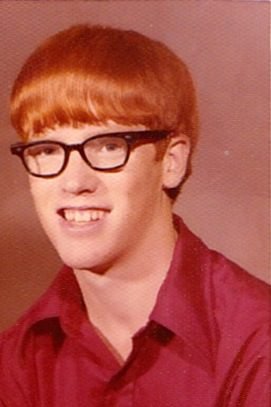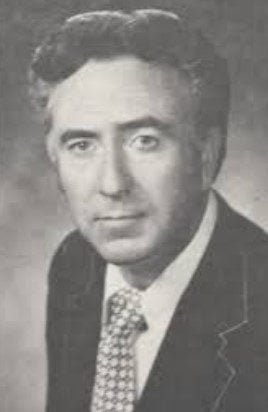
Originally Published in 2015. Edited and Expanded.
One of the questions I am often asked is, why did you become an Evangelical or why did you become an Independent Fundamentalist Baptist?
This is the wrong question. The real question is this: how could I NOT have become an Evangelical or Independent Fundamentalist Baptist (IFB)?
Every child is born into this world without a religion. None of them knows anything about God or religion, sin, salvation, or morality. As far as God and religion are concerned, every newborn is a blank slate (outside of what may come from DNA).
Belief in a tribal God must be taught and learned. This teaching is done by parents, extended family, and the culture/society the child grows up in. Children taken to a church, temple, or synagogue are taught to KNOW God and their parents’ religion.
Most children embrace the religion of their parents. Parents who worship the Christian God generally raise children who are Christian. This is especially the case for Evangelical children. From their toddler years forward, Evangelical children are taught that they are broken, vile sinners alienated from God who need personal salvation. They are taught that, unless they ask Jesus into their hearts, they will end up in Hell when they die. Every Sunday at church, at home during the week, and at school, if they attend a Christian school or are homeschooled, Evangelical children face an onslaught of manipulative, aggressive indoctrination methods geared to help them accept Jesus as their Savior and turn them into dutiful, tithing Evangelical Christians.
It should come as no surprise, then, that most Evangelical children make a salvation decision when they are quite young. This initial salvation experience usually carries them into their teenage years. They are safe and secure in Jesus until they are thirteen or fourteen years old.
It is not uncommon for Evangelical children, during their teenage years, to either make another salvation decision or rededicate their lives to Christ. Why is it that so many Evangelical children make another decision during their teenage years?
Think about it. What happens during the teenage years? Children reach puberty, and they begin to discover they have sexual desires. They start wanting to do things that their pastor, church, and parents say are sinful. Most Evangelical teens, if not all, give in to sinful desires. They feel guilty for doing so, and conclude that they must not “really” be saved or need to recommit their lives to Christ.
Many Evangelical teenagers find themselves caught in a constant cycle of sinning, getting saved/rededicating their life to Christ, sinning, getting saved/rededicating their life to Christ. As much as Evangelicals deny it, this cycle becomes the Protestant version of Catholic confession.
In the early 1960s, my dad moved us from Bryan, Ohio to San Diego. California was the land of opportunity in the 1960s, and my Dad was certain his pot of gold was somewhere in San Diego. He ended up selling patio awnings and driving a truck, and three years later we moved back to Bryan. That pot of gold turned out to be empty.
While living in San Diego, our family attended Scott Memorial Baptist Church, an IFB institution. The pastor at the time was Tim LaHaye, of Left Behind and Act of Marriage fame. Both of my parents made public professions of faith in Christ at Scott Memorial. I also asked Jesus into my heart in Junior Church. I was five years old.
Politically, my parents were right-wing extremists. They were members of the John Birch Society, hated Martin Luther King Jr., and supported the war effort in Vietnam. Their salvation decision at Scott Memorial fit well with their political and social ideology.
From this point forward, until my parent’s divorce in April of 1972, the Gerencser family was in church every time the doors were open. Sunday morning, Sunday night, prayer meeting, and revival meetings — we were front and center of whatever Fundamentalist church we were attending at the time. When I became a teenager, attending youth group after church was added to the schedule, along with regular youth group activities.
In the fall of 1972, Evangelist Al Lacy came to our church, Trinity Baptist Church in Findlay, Ohio, to hold a revival meeting. On Sunday, during Lacy’s sermon, the spirit of God came over me, telling me that I was a sinner in need of salvation. When it came time for the public invitation, I quickly stepped out of the pew, came down the aisle, and knelt at the altar. There, a church deacon by the name of Ray Salisbury took me through the Romans Road plan of salvation and I asked Jesus to forgive me of my sins and come into my heart. I was fifteen. I was baptized that night, and a week or so later I went forward during the altar call and let the church know that God was calling me to be a preacher. Two weeks later, I preached my first sermon.
As a first-grader in San Diego, I told people that when I grew up, I was going to be a preacher, and now, as a fifteen-year-old boy, I was telling the world that God was calling me to be what I had wanted to be my entire life. From this point forward, most of the preachers I came in contact with worked with me and steered me toward fulfilling my calling. It came as a shock to no one that I enrolled at Midwestern Baptist College in Pontiac, Michigan in 1976 to study for the ministry.
All told, I preached for thirty-two years, spending twenty-five of those years pastoring seven churches in Ohio, Texas, and Michigan. I preached more than four thousand sermons and taught countless Sunday school classes. For many years, I also preached on the street and at the local nursing home. So when someone asks, Why did you become an Evangelical? or Why did you become an Independent Fundamentalist Baptist? I counter that the real question, based on what I have written here is this: How could I have become anything else?
Bruce Gerencser, 68, lives in rural Northwest Ohio with his wife of 47 years. He and his wife have six grown children and sixteen grandchildren. Bruce pastored Evangelical churches for twenty-five years in Ohio, Texas, and Michigan. Bruce left the ministry in 2005, and in 2008 he left Christianity. Bruce is now a humanist and an atheist.
Your comments are welcome and appreciated. All first-time comments are moderated. Please read the commenting rules before commenting.
You can email Bruce via the Contact Form.


